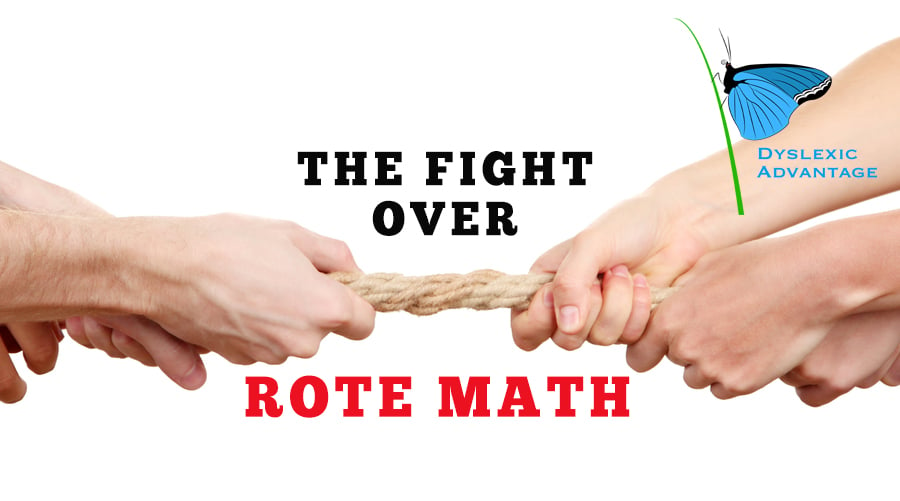NASP or the National Association of School Psychologists recently published an article entitled: “Four Dyslexia Screening Myths That Cause More Harm Than Good in Preventing Reading Failure and What You Can Do Instead.” As many of you who are involved in dyslexia advocacy know, NASP holds a great deal of influence over school psychologists. At least in the past NASP probably contributed to reluctance of school psychologists to “say dyslexia” in schools (see 2007 NASP Position Statement here). Some highlights: “At a time when schools are administering more screening to detect risk for reading failure than at any time in the history of education, it is interesting that legislative mandates are prescribing more reading screening in the name of better identification and treatment of dyslexia. Given that most schools already […]
Dyslexic Master Montessori Teacher ALISON AWES [Premium]
I recently had a chance to talk with Master Montessori Teacher Alison Awes who is based at the Montessori Training Center of Minnesota. Alison is dyslexic herself and she has written about how Montessori instruction can support dyslexic students. Alison is also trained in Orton-Gillingham Level1. Like the Orton-Gillingham method, the Montessori approach was created by a physician working with special education students. I knew about Montessori because both our children attended Montessori preschools and we liked many aspects of the educational approach, including self-directed learning, multi-age classrooms, and well-designed hands-on materials. I was interested in hearing about Alison’s experiences because she attended a Montessori school herself until the age of 12 and then transitioned to a traditional middle school. She only discovered that she […]
Positive Affirmations [Premium]
A dyslexic woman and successful tech entrepreneur was interviewed and asked what helped her overcome ‘the odds.’ Here’s what she said: “Affirmations…I literally told myself the naysayers were wrong about me. I told myself exactly what I needed to hear, every single day, to move my life forward.” Here are some of the affirmations on her list – what are yours? 1. “The biggest and most complex obstacle I will ever have to overcome is my mind. If I can overcome that, I can overcome anything.” 2. “I cannot control exactly what happens in life, but I can control how I respond to it all. In my response is my greatest power.” 3. “I have to accept whatever comes my way, and the only important […]
MATH: When Words Get In the Way [Premium]
For dyslexic students, the language of math can confuse and obscure. Teachers, tutors, and parents should be aware that language could be interfering with math performance and not mathematics itself. From Dyslexia and Mathematics: Here is an example of a dyslexic student’s sharing of how she becomes confused by what a teacher is saying. The capital letters indicate words that required her to stop and think. Teacher: “We are going to TAKE 25 FROM 61. WRITE DOWN 61 first (I sometimes wrote the first figure I heard before the second one). WRITE DOWN 25 UNDERNEATH it. Put the 2 UNDER the 6 and the 5 UNDER the 1. Draw a line UNDERNEATH. Start at the bottom on the RIGHT. Take 5 AWAY FROM 1. […]
What’s the Most Stressful Time for Dyslexic Students?
ANSWER: Grades 3-5 in Elementary School. If we know this, are we doing everything we can to help students emotionally and socially in these grades? There are many pressures that converge on the 3-5th grade (see The 3rd Grade Wall), and developmentally, it is a...
STRATEGIES FOR THE MOST COMMON SPELLING MISTAKES: THE SCHWA [Premium]
Once you learn how to recognize the ‘schwa’, you’ll start recognizing them everywhere! In linguistics, the schwa sound is represented by an upside-down ‘e’ and the mouth position is a lot like the ‘uh’ sound in ‘butter’. It contributes to lots of misspellings in dyslexic students (and actually non-dyslexic students too) so recognizing the patterns can significantly improve all-round spelling performance. STRATEGY 1: EXAGGERATE / MISPRONOUNCE THE SCHWA One surprisingly easy strategy is to exaggerate and deliberately mispronounce a word in order to remember the correct spelling. For instance, the-thee reminds you that the schwa is spelled with an ‘e’. Look at the following 3 objects: monitor, computer, and calendar. To remember -or, -er, and -ar, a student can pronounce monitor as mon-i-TOR, exaggerating the […]
Latest Research: Repetition As a Poor Way to Teach Dyslexics [Premium]
In groundbreaking research, researchers at MIT or the Massachusetts Institute of Technology reported that dyslexic children and adults have “a diminished ability to acclimate to a repeated input in their paper titled “Dysfunction of Rapid Neural Adaption in Dyslexia.” Like many research papers, dyslexia is seen through a negative lens (‘dysfunction’) and the take-home points through university press releases, similarly so, however the findings are interesting ones and fit with an evolving picture of dyslexia as a learning difference (rather than disease or disability) that extends beyond reading and has ramifications for many aspects of education. “It’s a difference in the brain that’s not about reading per se, but it’s a difference in perceptual learning that’s pretty broad,” says John Gabrieli, who is the study’s […]
[PREMIUM] Tips from a Dyslexic World Memory Champion
When people say they would like to ‘brain train’ or get smarter for school, they often mean they want to make their brains more efficient – so they learn more, but also work less. One of the most straightforward ways to do this is to boost memory – and for most dyslexic people, the way you train may be more important than how hard or how much. We talk about memory trade-offs a bit in our book, The Dyslexic Advantage, but briefly, in general, dyslexic people of all ages tend to show a preference for personally-experienced memories rather than dry facts that need to be memorized by rote. A trick for memorizing more efficiently is to take the dry stuff and transform it into something […]
Memory: Why Drill Can Kill – and What to Do Instead [Premium]
It would almost seem without question that repetition should be helpful for learning, but researchers have found that if repetitions are too much and too long (longer than 10 seconds in one paradigm), further repetition caused poorer memory and word retrieval rather than better! From one of the papers below: “Both Experiments 1 and 2 demonstrated a striking and clear violation of the memory benefits typically associated with repetition. Specifically, increasing the rehearsal time of a word did not yield a straightforward monotonic increase in performance on a later free association test; rather, it led to a nonmonotonic effect, with performance initially increasing, but then declining with longer repetition durations.” The reason for this effect is currently being studied, but the researchers speculated that the increased forgetting […]
The Fight over Rote Math
If you think you've been hearing conflicting information about rote math in the news or from schools, you're absolutely right. The fight is spilling over to educational policymakers and makers of standardized tests such as the College Board. For dyslexic and...
Research: Classroom Culture Matters – Effects on Reading Performance [Premium]
In the latest issue of the Journal of Learning Disabilities, researchers from Harvard and Greece found that classroom culture, and in particular LD students’ perceptions of their classrooms motivational framework had sudden, significant, and unpredictable effects on reading performance and students’ emotional state. From the authors: “The purpose of the present study was to evaluate the proposition that a classroom’s motivation discourse exerts significant influences over students’ achievement in reading.” The two conditions that researchers compared were: #1. Mastery (internal standard) – “In our class trying hard is important” #2. Performance (external standard) – “In our class, getting good grades is the main goal.” Their brief conclusions: “…the results confirmed the research hypotheses concerning the role of mastery and performance goals. The form (mastery) had a […]
Bridging the Gap to Reading Long Words [Premium]
In our last post, we wrote about the 3rd grade gap or wall. Dyslexic students typically get through the hard slog of phonemic awareness and then parents and teachers breathe a sigh of relief. Many times, the extra work fades away and students are integrated back into their usual classroom routine. All seems well, but a problem may remain. Reading remains effortful and the complexity of the text goes up. Students may not be able to keep up. With little extra help and too little time to complete assignments, the “guess and go” approach may dominate the reading strategy so that the gap between peers increases. A large part of the problem may be that students have not effective strategy to read long words. These problems can come […]

![NASP Publishes Advice About Dyslexia Screening [Premium]](https://www.dyslexicadvantage.org/wp-content/uploads/2017/09/Screen-Shot-2019-09-01-at-7.43.51-AM.jpg)
![Dyslexic Master Montessori Teacher ALISON AWES [Premium]](https://www.dyslexicadvantage.org/wp-content/uploads/2017/09/Screen-Shot-2019-08-31-at-4.00.40-PM.jpg)
![Positive Affirmations [Premium]](https://www.dyslexicadvantage.org/wp-content/uploads/2017/08/Screen-Shot-2019-09-01-at-9.07.26-PM.jpg)
![MATH: When Words Get In the Way [Premium]](https://www.dyslexicadvantage.org/wp-content/uploads/2017/08/talking-pixabay.png)

![STRATEGIES FOR THE MOST COMMON SPELLING MISTAKES: THE SCHWA [Premium]](https://www.dyslexicadvantage.org/wp-content/uploads/2017/02/Screen-Shot-2019-09-03-at-2.08.42-PM.jpg)
![Latest Research: Repetition As a Poor Way to Teach Dyslexics [Premium]](https://www.dyslexicadvantage.org/wp-content/uploads/2016/12/shutterstock_133874900.jpg)
![[PREMIUM] Tips from a Dyslexic World Memory Champion](https://www.dyslexicadvantage.org/wp-content/uploads/2016/11/shutterstock_266694722-scaled.jpg)
![Memory: Why Drill Can Kill – and What to Do Instead [Premium]](https://www.dyslexicadvantage.org/wp-content/uploads/2016/11/memory-graphic-our-shutterstock-scaled.jpg)

![Research: Classroom Culture Matters – Effects on Reading Performance [Premium]](https://www.dyslexicadvantage.org/wp-content/uploads/2016/11/our-shutterstock-class.jpg)
![Bridging the Gap to Reading Long Words [Premium]](https://www.dyslexicadvantage.org/wp-content/uploads/2016/11/Screen-Shot-2016-11-04-at-9.52.37-AM.jpg)













